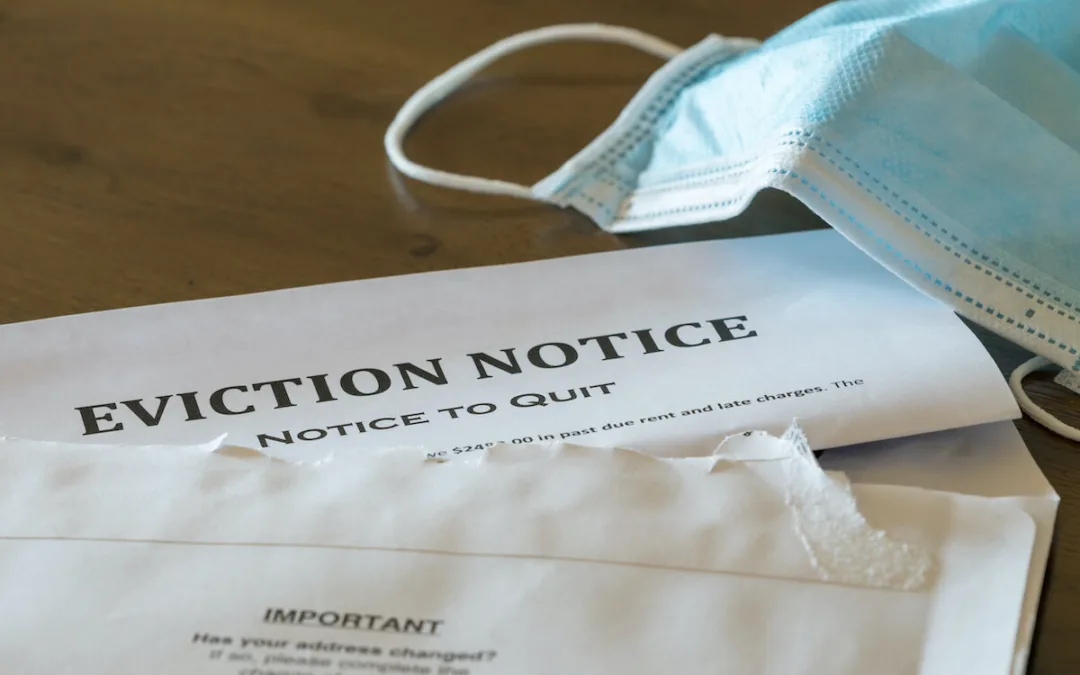
#image_title
Stimulus checks gone, waiting on unemployment checks.
Even as the slow startup of the Wisconsin economy allows her to begin earning income again as a waitress, Elaine Schmidt worries a protection against evictions that is set to disappear could force her and her 3-year-old daughter out of their Wausau apartment.
A 60-day stay on evictions related to renters’ lost income because of COVID-19 expires Tuesday. That order, signed on March 27 by Gov. Tony Evers, was intended to keep Schmidt and other renters in their homes as they struggle economically after many lost jobs amid the virus-related shutdown.
In another effort to keep tenants housed, last week Evers announced the Wisconsin Rental Assistance Program through which the state is spending $25 million of its $1.9 billion federal Coronavirus Aid, Relief, and Economic Security (CARES) Act disbursement to help people pay their rents.
Housing advocates in Wisconsin praised that action but said they worry eviction proceedings against tenants behind on their rent could ramp up with so many facing economic hardship. While evictions against tenants with past-due rent can restart on Tuesday, rental assistance program payments aren’t expected to begin until at least June, officials said.
Amy Bliss, executive director of the Wisconsin Housing Alliance, praised Evers’ and said the state must make sure funding gets to people renting homes as quickly as possible.
“I really hope this process can happen as quickly as possible,” Bliss said. “People really, really need this money now.”
Lieutenant Gov. Mandela Barnes acknowledged that concern and said state officials are working hard to make funding available to renters as soon as possible in an effort to avoid evictions.
“We know the need for this funding is huge, and we will do what we can to get this money out to the people who need it as fast we can,” he said.
Like many, Schmidt said she used her $1,200 federal economic stimulus check to pay rent during the past two months. But she wonders how she will make up past-due bills she has accrued after earning no income during that time and experiencing difficulty accessing unemployment funds.
“It’s going to be a struggle, that’s for sure,” she said of paying upcoming rent on top of other costs. “I like where I live, and I’m afraid we might lose our place.”
Those qualifying for the rental assistance program will be eligible for up to $3,000 to pay rent and/or security deposits.
To be eligible, an applicant must be a state adult resident who lost income related to COVID-19 and have a household income at or below 80 percent of the median household income in the county where they reside during the month of or prior to the application date. The median household income in Wisconsin is $60,773.
The rental assistance program comes at a critical time, Barnes told UpNorthNews. With so many people at least temporarily displaced from jobs because of the COVID-19-prompted shutdown, people in his hometown of Milwaukee and across Wisconsin are struggling to make rent and mortgage payments.
“Right now there is so much confusion and uncertainty out there, including when it comes to housing,” Barnes said. “This rental assistance program is at least one area where we can try to alleviate some of the burden that people are facing.”
People losing housing because of decreased income is a concern across much of Wisconsin, including in Eau Claire, where statistics show 46 percent of city residents struggle to pay basic living costs such as rent, according to the Asset Limited, Income Constrained, Employed (ALICE) study.
Jeanne Semb is housing services coordinator for the Western Dairyland Economic Opportunity Council that provides services to low-income residents in Eau Claire, Jackson, Trempealeau and Buffalo counties. She and others have been meeting to discuss rental assistance payments, and she is grateful for the funding.
But Semb said she worries landlords could begin evicting tenants before they receive rental assistance dollars.
“My biggest concern is that the landlords work with us on this,” she said.
During the COVID-19-related shutdown of businesses, many tenants across Wisconsin have faced challenges paying rent because of lost income, housing advocates said. Difficulties accessing unemployment payments have added to monetary woes, they said.
More than 2 million unemployment claims have been filed in Wisconsin since March 15, overwhelming the state Department of Workforce Development. Of those, more than 675,000 remain unpaid.
Many people who rent their homes were disproportionately impacted by the shutdown, Bliss said, because they lack a fiscal safety net and work in business sectors such as hotels, restaurants and other services jobs most hard-hit economically the past couple of months. Barnes agreed, saying the pandemic has furthered existing inequities in our current system.
“The people who are already facing housing insecurity are the ones being hit the hardest right now,” he said.

Wisconsin towns will turn old motels, schools into affordable housing
Several Wisconsin communities — including Ladysmith, Rhinelander, and Elkhart Lake — are addressing their workforce housing needs with new...

The best months to buy (& sell) a Wisconsin house in 2024
Wisconsin has been a seller’s market for more than two years. Since March 2022, average home prices have increased by roughly 7%, while statewide...

La Casa de Esperanza Has Served the Hispanic Community in Waukesha For Much Longer Than a Lot of People Might Think
Agency has served the Latino Community and others in need for more than 50 years If you stand outside Jesus Avila’s classroom on any given...

Afraid You Might Face Eviction? Here’s How to Use the Federal Eviction Moratorium.
Wisconsin landlords have already filed 1,900 evictions this year. Here’s how renters can stay housed. A federal eviction moratorium remains in...




